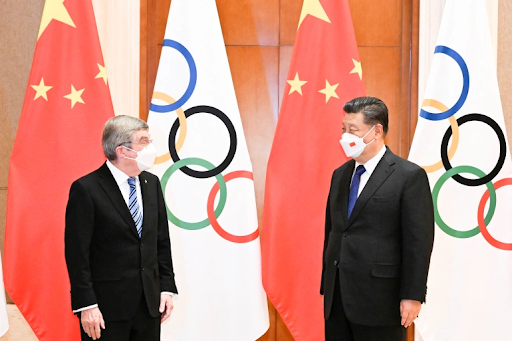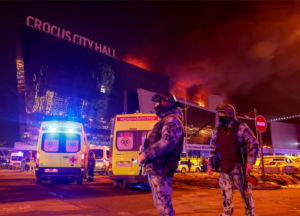The Political and Security Concerns of the 2022 Winter Olympics

Image Courtesy of Aljazeera
By Zachary Lichter
The 2022 Winter Olympics are already underway in Beijing, and before the games even began, the political controversy between China and the world was on the rise. This controversy began with the issues on human rights and free speech when members of the Uyghur Muslim population were arrested in the Xianjing province and sent to a re-education camp. Free speech and human rights led the United States to become the first nation to declare a diplomatic boycott of the Games in December 2021, by not sending any politicians to the Opening Ceremony in Beijing. Canada, Great Britain, Australia, India, Belgium, Denmark, and many other countries joined the United States. Knowing human rights and free speech are a problem in China, athletes will have to watch what they say during press conferences.
“China is a major violator of both human rights and free speech,” said political science major Matthew Bubb. “The current genocide of the Uyghurs is a stark example of human rights violations. Then the abuses and crackdowns of freedoms in Hong Kong is an example of China violating fundamental rights such as freedom of speech. These violations are being legitimized by the world participating in the Beijing Olympics and giving China the opportunity to showcase their ‘greatness.”
Between the 2008 Summer Olympics and the 2022 Winter Olympics, the United States and the world have watched China grow into a major geopolitical and economic superpower. On March 14, 2013, Xi Jinping became the seventh president of China and the chairman of China’s Communist Party. During his administration, he has worked with U.S. Presidents Barack Obama, Donald Trump, and Joe Biden, with whom he has worked on many issues, including trade.
“China and the United States have a competitive relationship that is the natural result of the U.S. status as the world’s most powerful country and China’s status as a rising power seeking to supplant the U.S.,” said history major Dillon George. “The two nations have the world’s largest trading relationship and share many political and economic interests, but there are many tensions between the two regarding issues such as human rights, Taiwan, and the treatment of Uighurs in Xinjiang.”
Along with the political tensions happening in the world, there are also security concerns about the 2022 Winter Olympics. The Federal Bureau of Investigation (FBI) informed U.S. athletes that before they left for Beijing, they needed to bring burner phones instead of their regular cell phones. The FBI believes that cyber-attacks could potentially happen while the athletes are away and suggested athletes refrain from using personal phones so that the Chinese government could not steal any personal information. While the FBI is not aware of any cyber attacks that are happening, they wanted to warn U.S. athletes to remain vigilant, just in case a cyber attack were to happen. If the U.S. athletes brought either their iPhone, Samsung, or Android, they would have to download a tracker app where the Chinese government would be monitoring their activity; athletes already have to download an app to track their health.
As the Winter Olympics come to a close on February 20, 2022, the question is whether the world will be different regarding China after the 2022 Winter Olympics? Will communism play a role in the 2022 Winter Olympics? China made its political statement during the Opening Ceremony by using all of the snowflakes with each country’s name during the Parade of Nations to create one giant snowflake during the torch ceremony, attempting to portray the message of unity. The torch was also presented by an Uyghur athlete competing for China. For the next two weeks, China will hope to show how big of a superpower they really are as the games come to a close.







